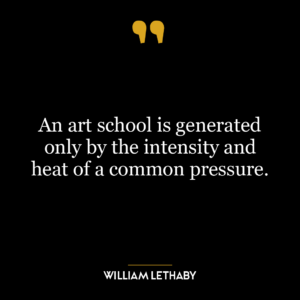This quote emphasizes the active role one must take in their own learning. It suggests that education is not something that is passively absorbed, but rather, it is something that is actively pursued. It is not a gift that is given or received, but a goal that is achieved through hard work, dedication, and a willingness to learn.
In essence, the quote is a reminder that education is not a one-way street where a teacher imparts knowledge and the student passively receives it. Instead, it is a two-way process that requires active participation from the learner. This means that the learner must be engaged, curious, and motivated to seek knowledge. They must ask questions, seek answers, and strive to understand concepts, ideas, and perspectives.
In today’s world, this quote is incredibly relevant. With the rise of the internet and digital technologies, information is more accessible than ever before. This abundance of information has shifted the role of educators from being the primary source of knowledge to being facilitators of learning. Thus, it is more important than ever for individuals to take responsibility for their own learning. They must be able to navigate through vast amounts of information, discern what is reliable and valuable, and integrate this knowledge into their own understanding.
In terms of personal development, the idea presented in the quote suggests that growth and learning are in our own hands. It encourages self-directed learning, a skill that is increasingly important in today’s rapidly changing world. Whether it’s learning a new language, mastering a new skill, or understanding a complex concept, it is up to us to set our learning goals and work towards achieving them. This not only leads to personal growth but also fosters a lifelong love for learning.
In conclusion, the quote “Education is not received. It is achieved.” underscores the importance of active learning and personal responsibility in education. It is a call to action for all learners to take charge of their own educational journey, a principle that holds true in both traditional educational settings and in the pursuit of personal development.










